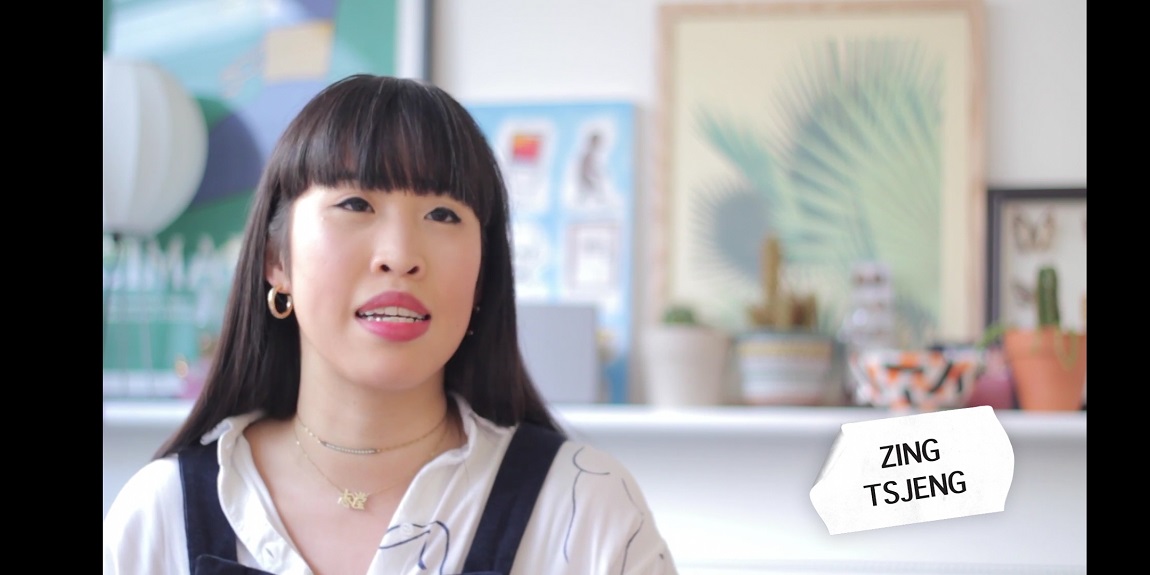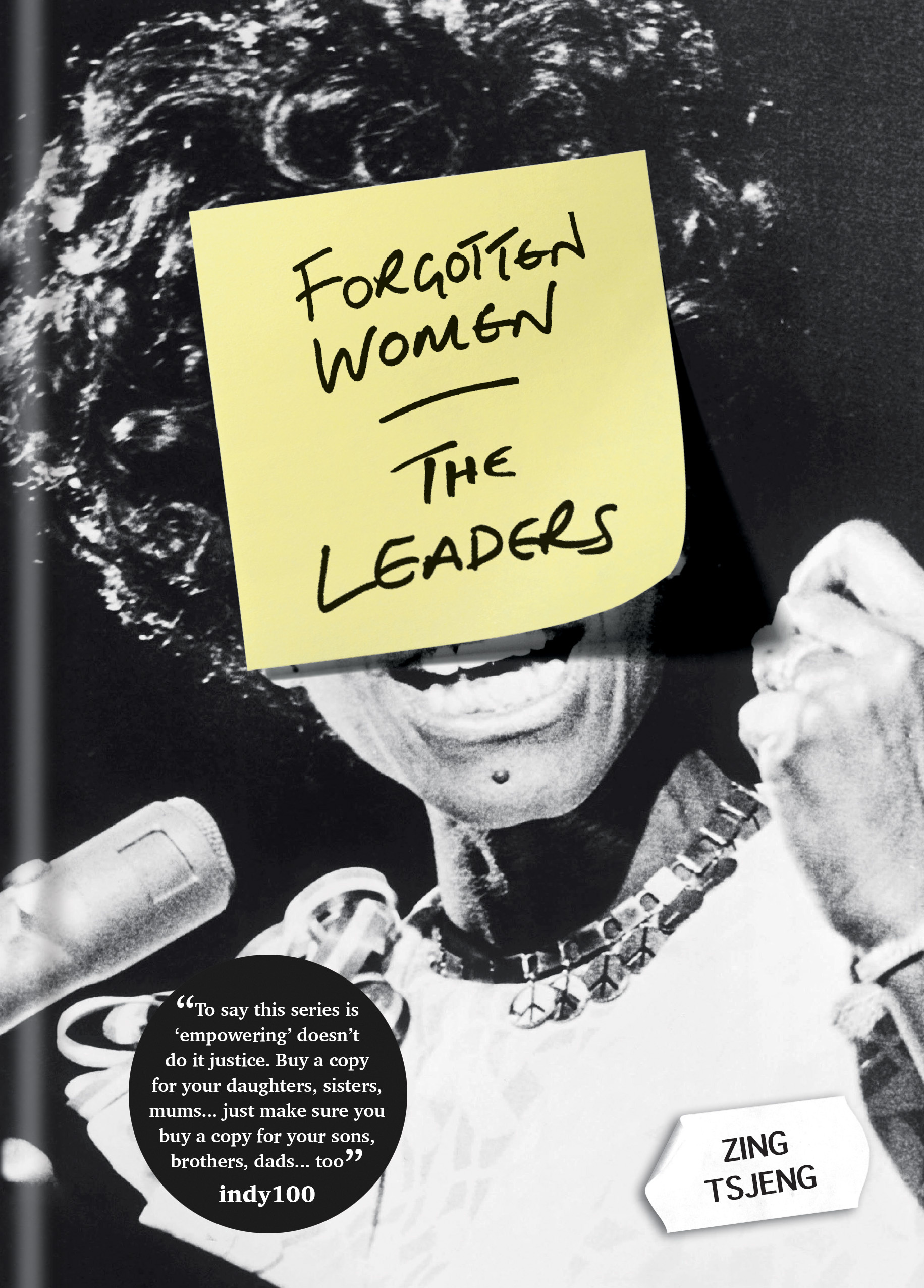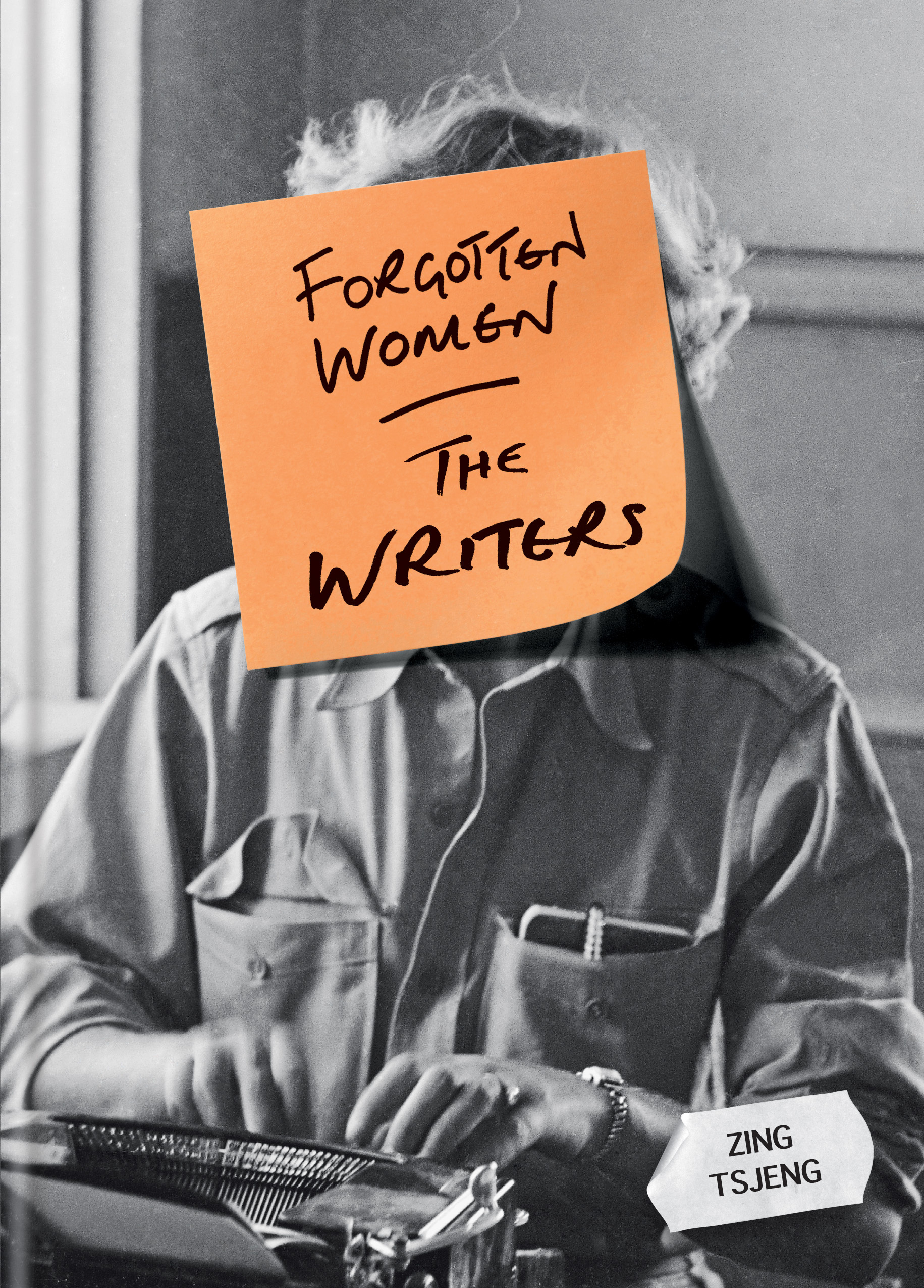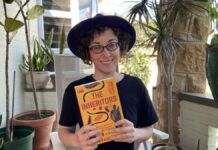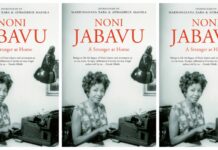World history remembers certain people better than others. Our records are dominated by white men from the West who supposedly led, conquered, and created the world as we know it. Zing Tsjeng’s Forgotten Women series challenges the way we remember history by colouring it in with some of the most prolific women from all over the world. Tsjeng writes women in all their complexity in the series which features books titled: The Artists, The Leaders, The Scientists, and The Writers.
“I had always been interested in history but more especially women’s history,” Tsjeng says, speaking over the telephone. The line is a little bit crackly and Tsjeng speaks in a British accent characterised by her experience as a Singaporean-born woman who has lived in the UK since she was a teenager. But, like many, Tsjeng grew up learning a history far removed from her own interests and experience. Unwilling to give up, Tsjeng began digging into her own family history.
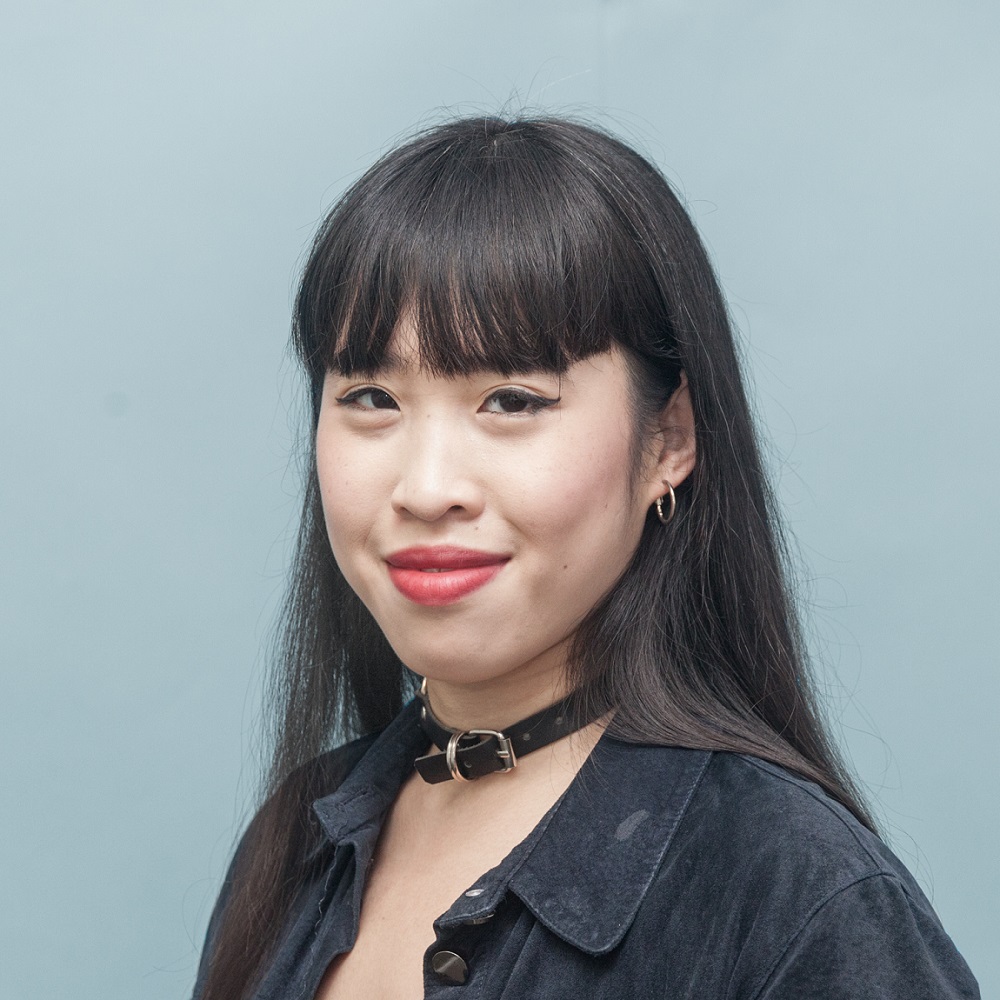
“I started looking more to my own family history and talking to my mom about her side of the family and I realised that there are so many incredible women in the background of my family,” she says.
Tsjeng’s grandparents lived through the Japanese occupation in Hong Kong during World War II (WWII) where her grandmother would smuggle food and supplies to the camps. As incredible as Tsjeng found this, the more she talked to other people the more she realised, “these kinds of women were in everyone’s family: all it took was a little bit of questioning to find out.”
That got Tsjeng thinking: “What kind of stuff can we find out if we stop accepting the kind of history we’ve been fed as students and young adults and start looking deeply at all the historical events in the world? WWI, WWII, artistic movements even, like pop art? There are women everywhere but either their contributions were not deemed important because they were women – so they never went down in the same way in history as men -, or they were just obscured altogether from history because their life stories didn’t quite fit the narrative we tell ourselves about women in history.”

This year, Tsjeng wrote all four of the books in the Forgotten Women series.
The Forgotten Women series was conceptualised to uncover the lost and untold histories of women who have refused to linger in the backgrounds and have made contributions in history that have significantly impacted how we live today. These women were completely unlike what we have been made to believe about women in history.
Take one of Tsjeng’s favourite people in The Leaders called Noor Inayat Khan, for example. “Noor Inayat Khan was a Muslim woman who grew up in the UK and fought for the French Resistance in WWII. It’s so far from everything we tell ourselves about how Muslim women should be and what Muslim women are like. Here’s this woman who goes to fight for the armed troops basically but we don’t get taught that in schools,” Tsjeng says.
Throughout history, there has been an effort to contort the way women are represented. But this happens in contemporary times too. “If you look at the successful women who are fed to us, people like Hillary Clinton, it’s a very middle class, white, cisgender, heterosexual idealised image of what a successful woman is like,” Tsjeng says.
“But that’s not true at all. There’s as much diversity within women as they are among men. It’s just that we have this very narrow-minded idea of what success looks like.”
The Forgotten Women series is important because it challenges the representations of women in history – but also in the present.
“I hope writing books like this can change how we perceive women in history,” Tsjeng says. “I hope that people are able to challenge preconceptions of a lot of the big world events – literary movements, artistic movements, political movements – so they get a better idea of the true diversity of these movements. It wasn’t just men or people from the West. It was people from around the world with different ethnicities, different nationalities, different sexualities all contributing. It’s time that we gave them the credit they deserve,” she adds.
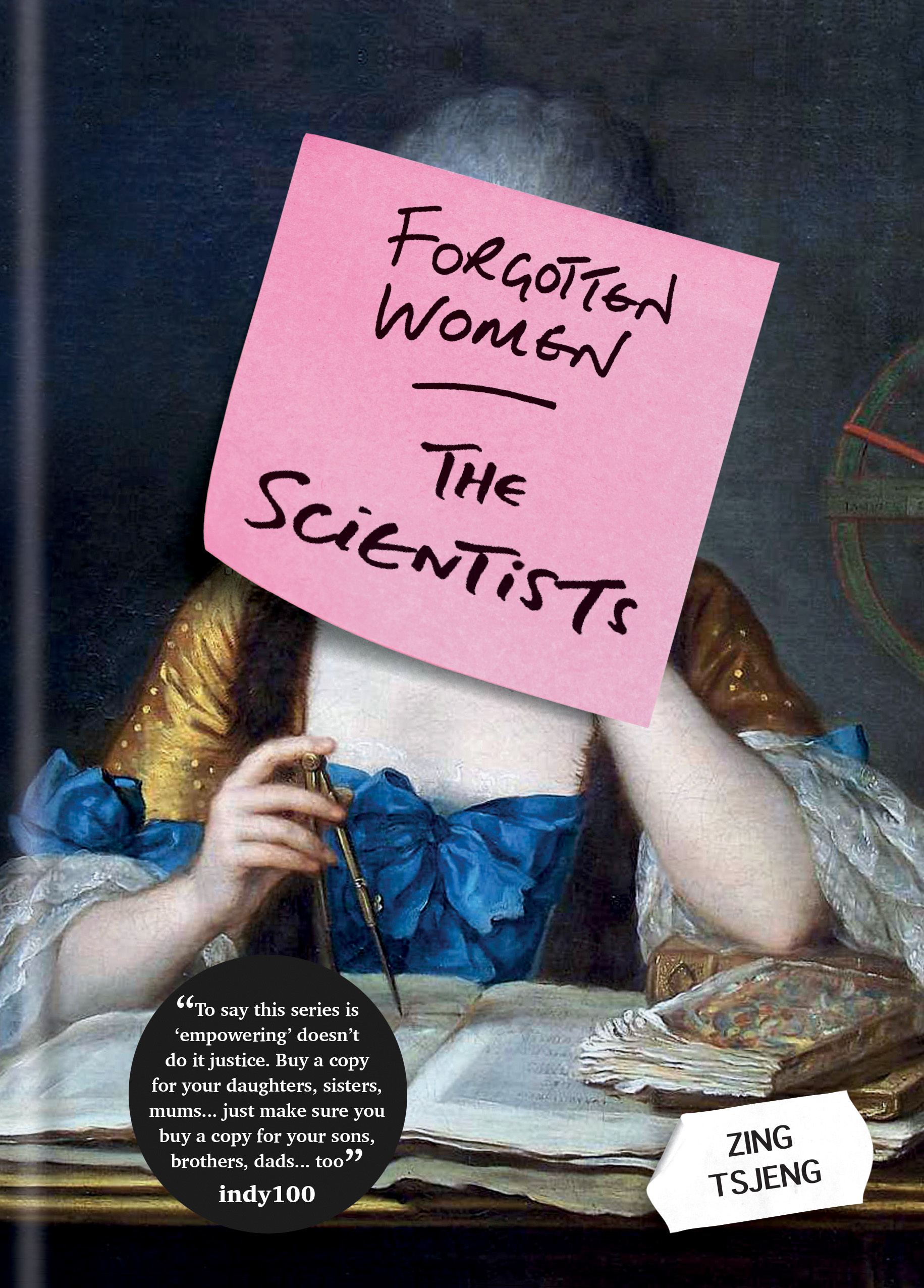
“I was really sick of the pale, stale, male idea of history. I was concerned about making sure that the book series had women from every single continent – except for Antarctica, obviously – and that it felt representative of world history. World history is the history of the world and not the history of the West or Britain or America,” she says.
“I wanted to produce books that people like me could pick up and go, ‘Oh it’s not just this western, Eurocentric idea of history. There’s people who live in the country I grew up in or my parents’ country or my grandparents’ country’. I wanted it to feel welcoming if you were a person of colour reading the book,” Tsjeng says.
The series is written so that no matter who you are, you’re bound to find inspiration and awe in the pages of its books. It’s clear that writing it was a labour of love.
Writing the series itself was extremely research-intensive, Tsjeng tells The Daily Vox. “I didn’t want to do a surface job on any of their lives,” she says. In her research, Tsjeng read what other people wrote about the people, read what they themselves wrote and saw the art they had created.
Writing The Writers was “pretty intimidating,” Tsjeng admits. It was the third book she wrote after The Scientists and The Leaders. The more she researched the more she admired the resilience of the writers and the way they honed their craft.
“I thought: ‘Oh God, these women really suffered for their writing. They weren’t just committed to literature, they were actually living through wars and were still producing work.’ Also, I was reading all of their work to produce their biographies and then I started thinking, ‘Oh I wish I wrote like this’, or ‘I wish I wrote like that’ or ‘I wish I could write poetry or haiku,'” Tsjeng says.
Researching these women has exposed Tsjeng to new literature and new art and new essays and criticism that she otherwise might not have been exposed to in her life. “That’s my hope for anyone who picks up the books: that that they read the stories of the women’s lives that speak to them and engage with these women’s work in a much deeper way,” she says.
The way Tsjeng sees it, these books are more of an introduction to the women’s lives that invites further engagement with their work.
Although some of the women existed thousands of years ago, their work is still relevant today. It’s incredible to see the continuity in the concerns that women have had throughout history, and the way many of them persist today.
“On one hand, we can think it’s kind of depressing because it’s like, ‘Oh shit we haven’t made any progress at all.’ But I felt more reassured that there have been women who have lived through this and faced the same kinds of issues in challenging times – women weren’t allowed to go to school or university, they weren’t allowed to earn their own money and work jobs – but there were women living through those times and they survived and thrived,” she says.
“In 2018 with all the privileges we have: our healthcare is better so we’re not dying in childbirth, we’re able to go to university and earn our own money theoretically, we’re not bound to property and status and we’re able to marry for love, we don’t even have to marry. It makes me think all the issues that they faced that we still face with all the privileges we have we are in a much better position to fix them,” Tsjeng says.
Published by Octopus Books, the Forgotten Women series is distributed by Jonathan Ball publishers. The books are available online and at most good bookstores for R 290.

